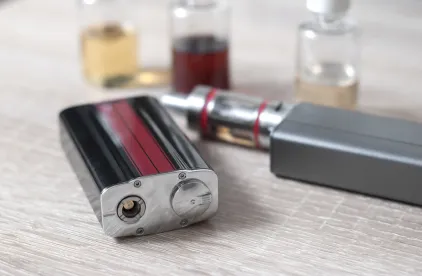Just like the traditional tobacco industry, Juul has started to issue grants to study the effects of e-cigarettes on users. Back in the bad, old tobacco days, almost all research was funded by tobacco companies through the Council for Tobacco Research (CTR) and the Center for Indoor Air Research (CIAR). Both companies were included in fraud cases against the industry. After a settlement in 1998, the tobacco industry started funding private groups. Much of that funding was undisclosed in study results, suggesting there might be a conflict of interest.
So…is Juul, a company heavily funded by big tobacco, the same? Or is this highly successful, private interest, for-profit company an altruistic anomaly?
Juul’s grant program seems to be part of a new advertising campaign to reverse its bad reputation for targeting youth. Juul is now focused on creating a socially-responsible reputation for health-conscious product marketing, including:
- Its unproven claim that the product works for smoking cessation;
- An adults-only website landing page and public statement campaign; and, now,
- An investment in e-cigarette research.
However, Juul’s concern for its product users only arose after coming under fire for the rising use of Juul products by underage users. By the time Juul launched its new advertising campaigns, it had already completed its big tobacco investment with Altria. According to reports, underage use of e-cigarettes had further increased another 40%. These facts throw shade on the selfless reputation Juul is trying to create with its new grant program. While you might applaud them for listening to their new tobacco investor, you should probably question their motives for the same reason.
If you look at this grant you will see Juul is giving $7.5 million tax-deductible dollars to a school. This is about 0.3% of its estimated annual sales. It’s a pretty meager investment with a high-value publicity gain. That is smart marketing–Juul’s key skill. Smart marketing is how Juul swept up 75% of the e-cigarette market, largely composed of underage users. Juul’s youth-focused advertising (which has decreased as of this date) smacks of historic big tobacco advertising which was eventually and belatedly banned. Juul’s similar approach has generated exponential market growth, and, more recently, FDA and congressional investigations into its operations. Regrettably, the initial investigations only seem to address the prevention of advertising to underage users. Although this satisfies an immediate and important need, it largely ignores the health dangers inherent in e-cigarette use; health dangers that affect the adult population as well.
E-cigarette product development is still unregulated due to former FDA chief, Scott Gottlieb’s, failure to impose immediate FDA oversight of the industry back in 2016 and 2017. There have been many e-cigarette explosions that have caused devastating, permanent, injuries to youth and adults alike. There is also the danger of developing life-altering lung conditions, terminal cancers, and other health risks related to inhaling e-cigarette chemicals into the body. These dangers are exacerbated by a higher rate of nicotine addiction—alleged to be worsened by Juul’s nicotine delivery system—because addicted users vape more often and for extended periods.
To ignore the health risks of vaping and nicotine addiction is to repeat history. The tobacco industry depended on nicotine addiction for recurring sales and to capture new markets. The vaping industry, including Juul, appear to be banking on the same.



 />i
/>i
